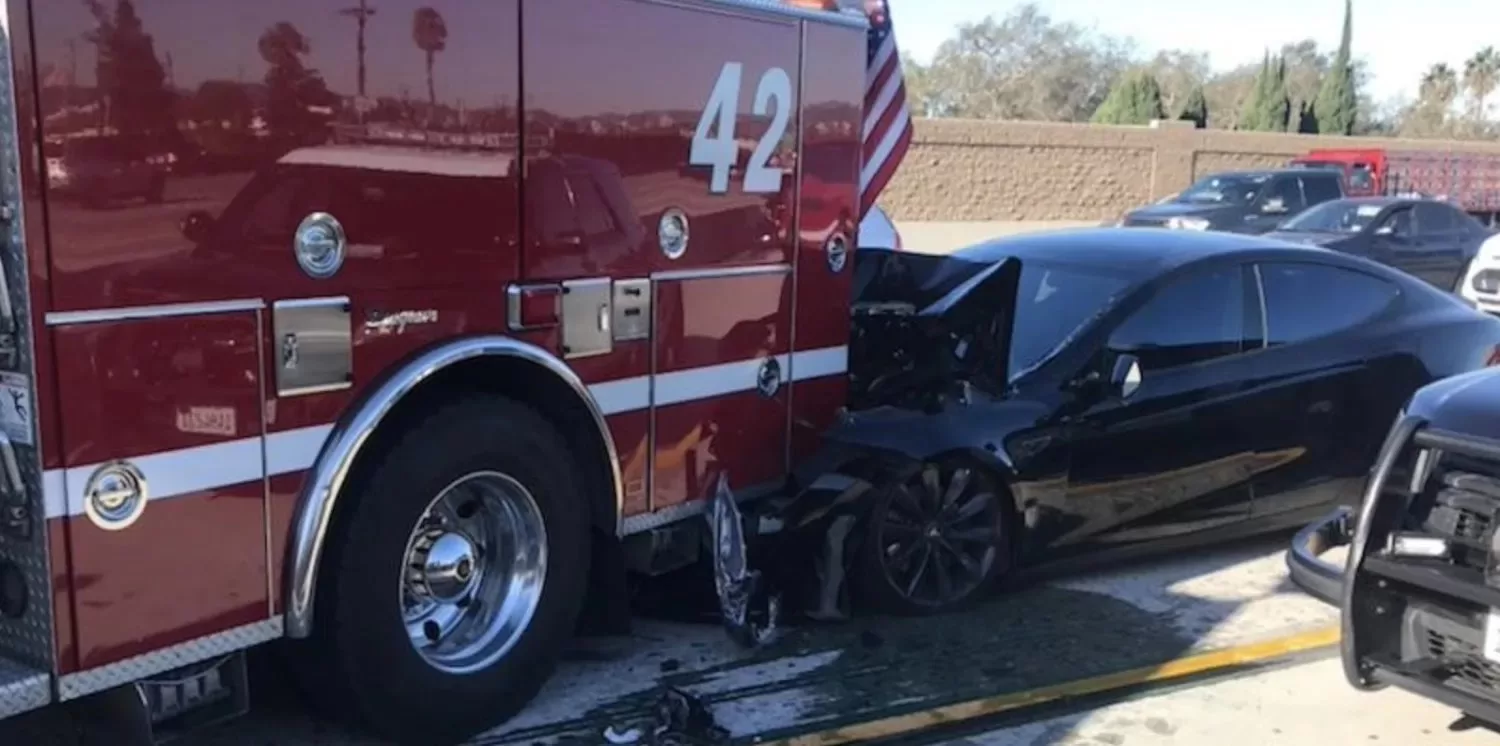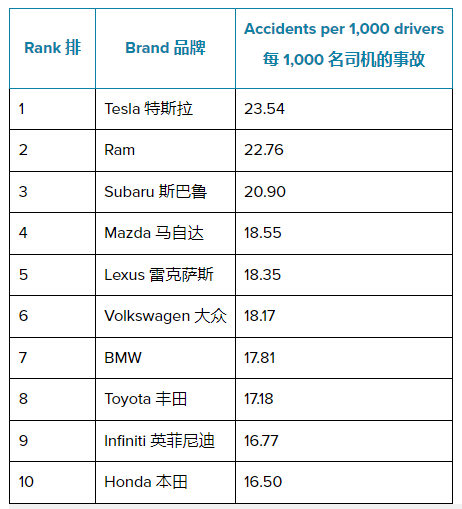On December 20th, according to a new study based on insurance claims data, Tesla drivers have the highest accident rate in the entire automotive industry, contradicting Tesla’s previous claims that the Autopilot feature can significantly reduce accident rates. So, who is lying?
Tesla once released an “Autopilot Safety Report” tracking the driving mileage and accident frequency of its vehicles with and without Autopilot, comparing it to industry averages. Tesla claimed that its Autopilot technology significantly improves driving safety, with even non-Autopilot vehicles having lower accident rates than the US average. However, IT Home noticed that Tesla stopped releasing the safety report last year, and there has been little disclosure of data related to Autopilot and fully autonomous driving technology since. Now, a new study based on insurance claims data from the US lending institution LendingTree shows that Tesla drivers have a much higher accident rate compared to other brands. LendingTree analyzed millions of insurance claims data to rank the brands with the highest accident rates per 1000 drivers, with Tesla at the top.
So, whose data is correct? Tesla may argue that they use data based on accident interval mileage, but this only holds water when Tesla drivers’ average driving mileage is higher than the industry average, which is not the case. Electrek claims that the data they found shows that the average annual driving mileage of Tesla drivers is about 10,000 miles, while the US average is about 12,000 miles. It is worth noting that Tesla seems to have only counted accidents that “triggered airbags or other restraints,” while LendingTree covers all insurance claims, including minor fender benders that did not trigger airbags, which may explain the huge difference in the results of the two studies.

